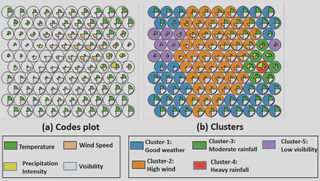Regional-scale Spatio-Temporal Analysis of Impacts of Weather on Traffic Speed in Chicago using Probe Data
Aug 19, 2019·, ,,·
1 min read
,,·
1 min read
Kuldeep Kurte
Srinath Ravulaparthy
Andreas Berres
Melissa Allen-Dumas
Jibonananda Sanyal
Abstract
Understanding a regional-scale impact of the weather on the transportation system and how that impact varies geographically, is important from a sustainability standpoint. In this work, we have performed a city-scale analysis on the impact of weather on the traffic speed for the City of Chicago. We have found that there is a significant variation in the average hourly speed due to different weather patterns which also varies geographically. We have also observed that the rainfall has an evident impact on the average hourly speed on the freeways that are influenced by urbanized residential and commercial areas, and non-urbanized areas. Also, low visibility has shown a significant reduction in the average hourly traffic speed during the congested hours on the freeways that are influenced by non urbanized areas. We anticipate the contributions of this work in estimating emission and fuel economy at a regional scale which are important sustainability measures for transportation.
Type
Publication
In Procedia Computer Science: The 9th International Conference on Sustainable Energy Information Technology (SEIT 2019)
